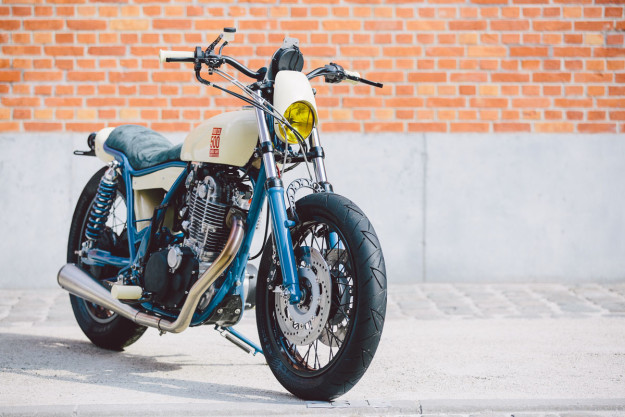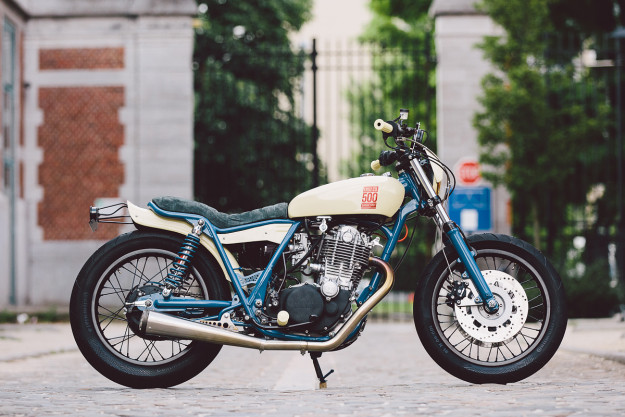
If there’s a bike deserving of ‘legend’ status, it’s the Yamaha SR series: the air-cooled single has been in production since 1978, with just a two-year hiatus. That’s 35 years on the market, and an incredible run for a motorcycle.
The SR400 has always been the volume seller, but we’d take the SR500 instead: it’s essentially the same bike, but with a different crank and a longer piston stroke.
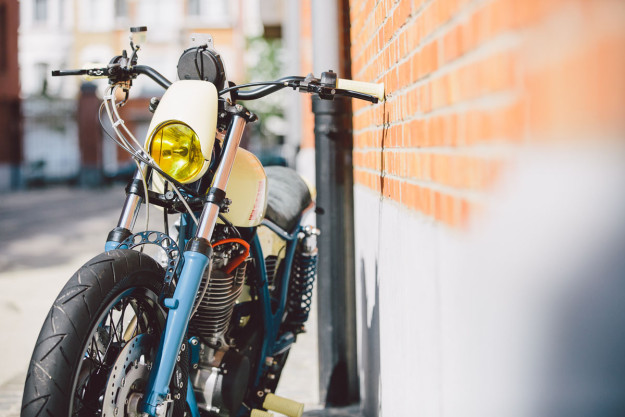
It takes a lot to impress us with an SR these days, but we love this SR500 from Kruz Company, a small but perfectly formed workshop in Belgium run by friends Brice and Olivier.
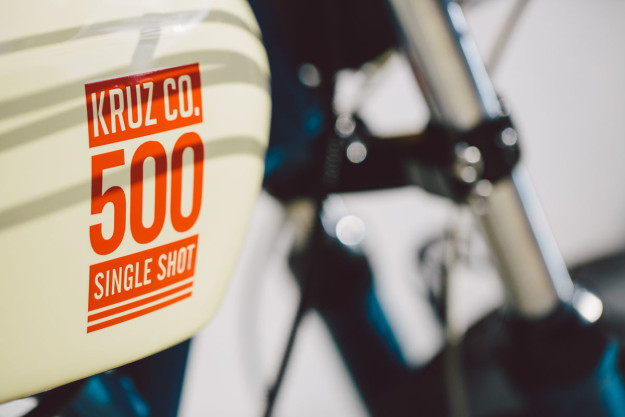
Belgium is a somewhat quirky country, and there’s an appealingly offbeat nature to this build.
“The customer was really open minded,” the Kruz boys tell us. “He came to the workshop with pictures of Japanese SR builds, so we studied that sub-culture for two weeks before making the first sketches.”
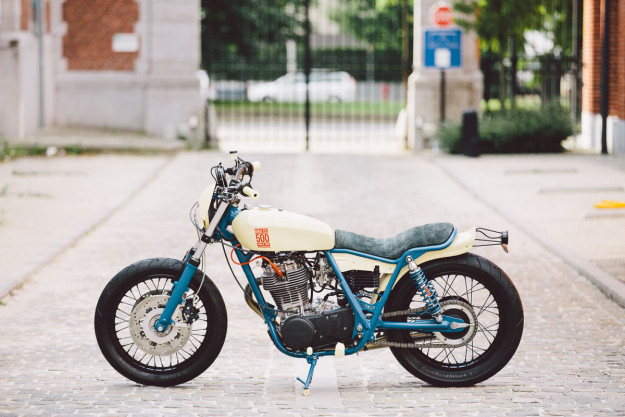
There’s a hint of chopper influence in the frame. Cut right behind the fuel tank, it’s been completely rebuilt in ‘sneaky snake’ style with chromoly tubes. For extra reinforcement, there’s a pair of bracing plates beautifully drilled to mimic bubbles.
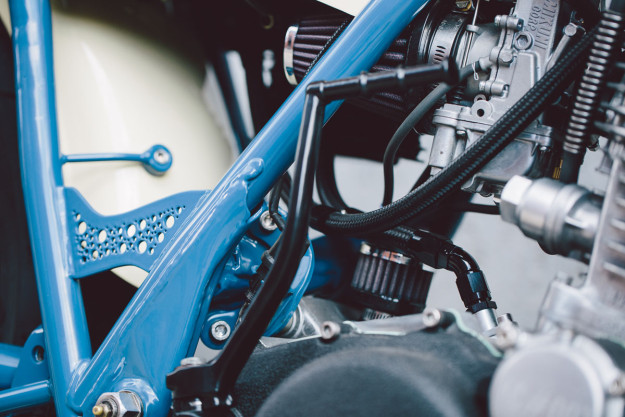
The fuel tank comes from a Yamaha RS 125, heavily modified to fit on the larger frame tubes of the SR500. Even more heavily modified is the rear fender, from an early Harley Sportster. A taillight and plate mount projects outwards: “Because we hate side mounts!”
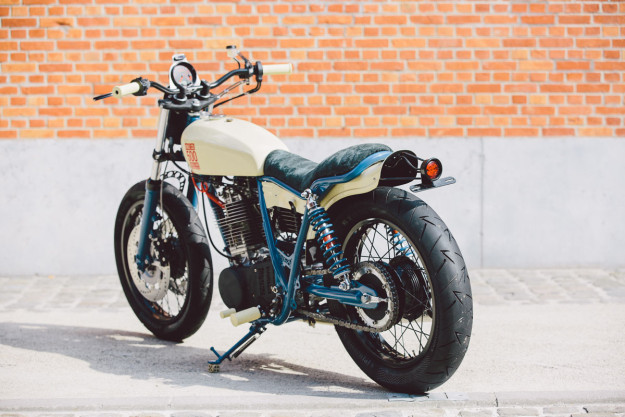
There are plenty of quirks elsewhere. The tiny front fairing is fashioned from an old Honda CB750 tank, and the hand-made seat—neatly bedded into the curved subframe—is finished with ‘upside down’ leather.
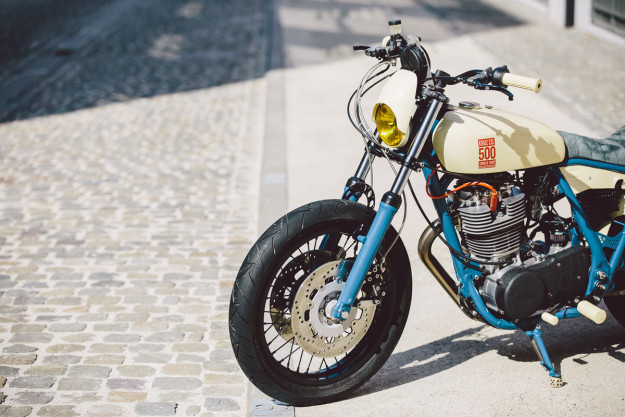
The SR500 engine is strong, but occasionally prone to overheating if heavily tuned. So Kruz have limited the mods to a bigger Mikuni carb and a custom exhaust pipe terminated with a classic SuperTrapp Megaphone muffler.
A discreet oil cooler sits to the side of the engine, providing a little extra insurance and peace of mind. Look closely, and you’ll spot an oil temperature gauge just ahead of the tank.
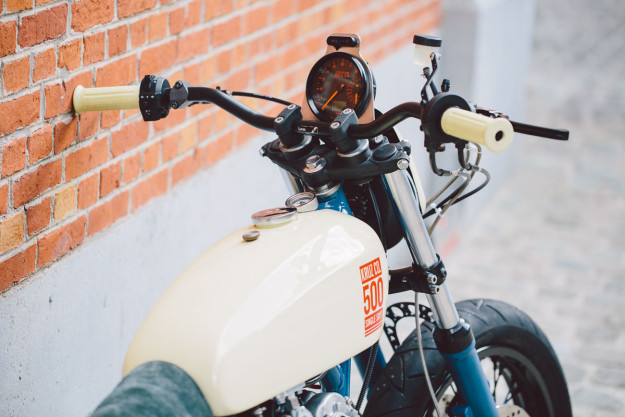
The Kruz Company philosophy is to build “efficient and fun machines to ride.” Although Olivier learnt his trade on the European superbike race circuit, he values reliability as much as performance when building customs.
The goal is to build “bikes that start in a flash every morning, and transport the rider with a certain class,” he says.
“A subtle balance between the modern and the old…”
Facebook | Instagram | Images by Sébastien Nunes
